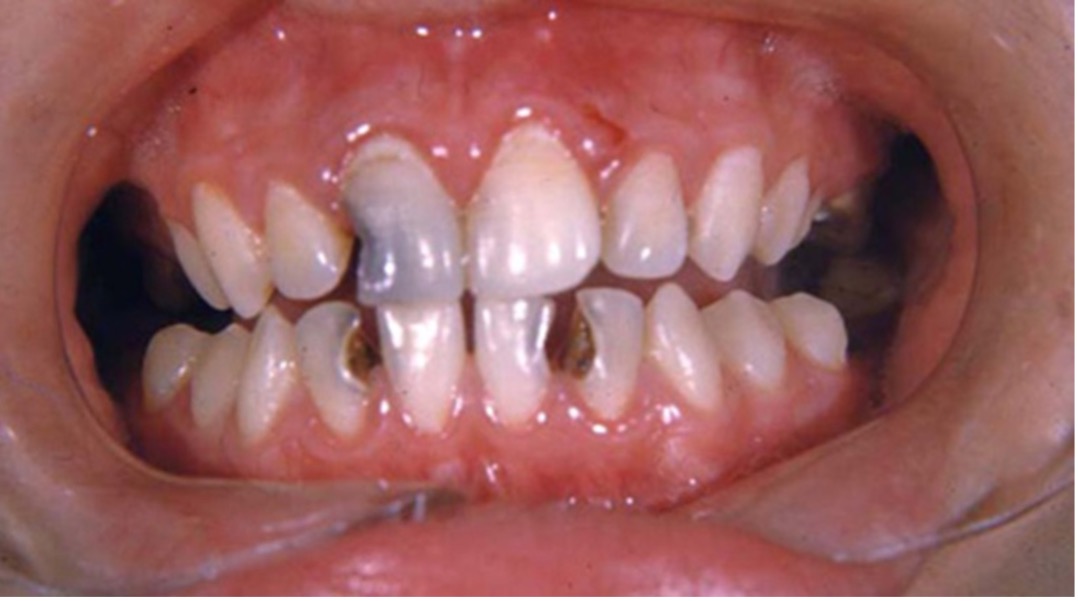Most serious dental problems are associated with bad habits.
If we practice bad habits, there are usually consequences. Correcting these dental habits in a timely fashion go a long way toward managing your dental expenses and living a healthier life.
This issue begins a two-part series on common dental problems you can avoid by changing your habits:
Not Brushing Especially Before Bedtime-
Are you too tired at evenings to brush your teeth before bedtime? We recommended not only brushing twice per day but especially before bedtime. Don’t brush then snack or drink soda, milk or some sugary drink immediately afterwards. Going to bed after drinking or eating is the fastest way to cause tooth decay and dental disease. During sleep time your saliva production slows down and bacteria feeds on any sugar on the teeth, producing acid that destroys your teeth.
Brushing With the Wrong Technique-
Brushing incorrectly also damages your teeth. If you think that brushing harder will get the job done better, it will not. In this period of high stress, we tend to brush too aggressively with a scrubbing stroke. The dreaded scrubbing stroke creates severe grooves on the teeth causing root sensitivity and bone loss. You should brush your teeth and gums gently using a soft toothbrush or an electric toothbrush that will do most of the work for you. Check with your dentist to learn the proper technique.
Brushing With a Hard/Medium Tooth Brush-
Contrary to the what you may think do not use a hard or medium tooth brush on your gums or teeth. The bristles are much too hard and damages the enamel and gums resulting in grooves on your teeth and severe gum recession. This also creates sensitivity and unnecessary expense to restore the teeth with fillings.
Biting or Nibbling on Non-food Items-
Chewing on non-food items, like your pen cap or pencil, or even your fingernails could lead to cracked or chipped teeth. You might chew on items without even realizing it while you’re deeply focused on studying or working, but if you find yourself doing it, it’s best to switch to a healthy alternative.
We recommend using sugar-free gum when you feel the urge. Chewing on gum will increase saliva flow, helping to clean your mouth while protecting your enamel against acid.
Using Your Teeth as Tools
If you’re using your teeth for anything other than chewing food, you will eventually damage your teeth. Keep helpful tools, such as bottle openers and a small pair of scissors in a handy location so you won’t be tempted to use your teeth to open bottles.
Eating Damaging Foods–
There are a few foods that can damage your teeth. Some of the worse are as follows:
- Ice or Candy: Chewing ice cubes or candy can damage your teeth. Frozen water might appear harmless, but experts recommend thinking twice before grabbing a cube to snack
- Cough Drops, Gummy Bears and Mints: Sucking an occasional cough drops, mints, or chewing gummy bears baths your teeth with excessive levels of sugar. Brushing immediately afterwards is recommended.
- Lemons and Limes: The acidity of lemons and limes could corrode tooth enamel. So if you repeatedly chew on lemons or suck on them to get their juice, the texture of your teeth could become porous over time.
Our eating habits are important factors in living a wholesome life. It is important that you understand the facts and stay informed. You can change the trajectory of your total health with the practice of good oral habits. Managing these damaging habits will go a long way in fostering a life of purpose and wellness.
In the next article, we will continue with other common habits that contribute to severe dental challenges.
Dr. Kendal V. O. Major is Founder and CEO of Center for Specialized Dentistry which is a comprehensive family dental practice operating in Nassau and Freeport. He is the first Bahamian Specialist in gum diseases and dental implants since 1989. He also is a certified Fastbraces provider. His practice is located at 89 Collins Avenue, Nassau at (242)325-5165 or [email protected].

Rotting teeth due to not brushing at bedtime

Stress related wear on teeth creating sensitivity and severe damage

Front Teeth Chipped from eating Ice cubes





